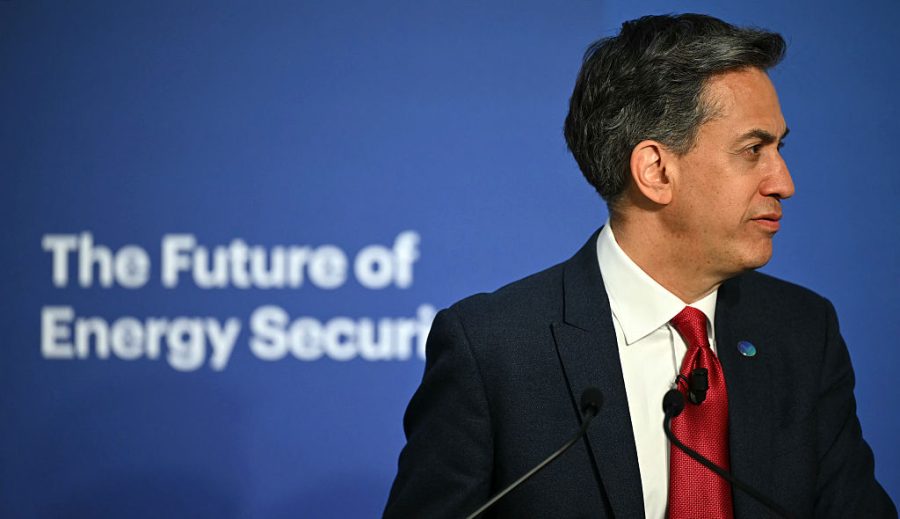Rachel Reeves is perhaps not a great fan of Donald Trump, but she should be grateful to him nonetheless, and Ed Miliband even more so. The trade war sparked by Trump’s ‘Liberation Day’ tariffs is about to lower energy prices for UK consumers.
According to a forecast by consultants Cornwall Insight, Ofgem’s price cap will fall in July by 7 per cent – to a level at which the average home with a dual gas and electricity bill will be paying £1,720 a year. It will reverse the uplift in the price cap in April and moderate the rise in the Consumer Prices Index (CPI), giving Reeves a bit of breathing room and – temporarily – diverting attention from the fact that Britain has the highest energy prices of any member of the International Energy Agency.
That doesn’t mean that the good news for energy consumers is going to last
The likely fall in the energy price cap from July will be purely a reaction to lower wholesale prices on international markets. Much though Miliband wants us to believe that fossil fuel prices are set by scheming dictators, it is simply markets at work. The fall in wholesale energy prices has been caused mostly by negative factors: energy traders were expecting the world to fall into recession as a result of the trade wars, killing off energy demand along with economic growth. The chances of global recession have receded quickly as Trump has indicated his preparedness to do rapid trade deals to mitigate – at least in part – higher tariffs, but it seems as if a sharp fall in energy bills in July has already been baked in.
That doesn’t mean that the good news for energy consumers is going to last, however. If global demand for energy picks up, the energy price cap can be expected to rise again in October, in time for winter. Miliband’s wind farms and solar farms are certainly not going to save us. Britain will continue to have sky-high gas and electricity prices.
According to the government’s own figures, UK consumers in 2023 paid an average of 36.39 pence per kilowatt-hour for their electricity compared with the equivalent of 35.43 pence in Germany, 20.57 pence in France and 12.86 pence in the US. Contrary to Miliband’s assertion that it is Britain’s reliance on gas which causes us to have the highest prices in the world, the US derives more of its electricity from gas (42 per cent) than does Britain (34 per cent).
Britain has such high electricity prices because of the way we are using gas: increasingly as a short-term backup for lulls in wind and solar. Use a gas power station for an hour a day and the unit cost of electricity is inevitably going to be much greater than if it were in constant use, because it still has to be maintained and the capital investment repaid. This, combined with Britain’s bizarre ‘marginal cost pricing’ – where wholesale prices at any one time are fixed by the most expensive form of energy available – are the reason that UK consumers are paying through the nose.
None of this will change as a result of a fall in the energy price cap in July. All that will happen is that the moment of realisation when the public begins to understand that Britain’s high energy prices are caused by an over-reliance on intermittent renewables – not gas – will be postponed. Miliband’s ruinously expensive target to decarbonise Britain’s electricity by 2030 will linger for a bit longer.








Comments